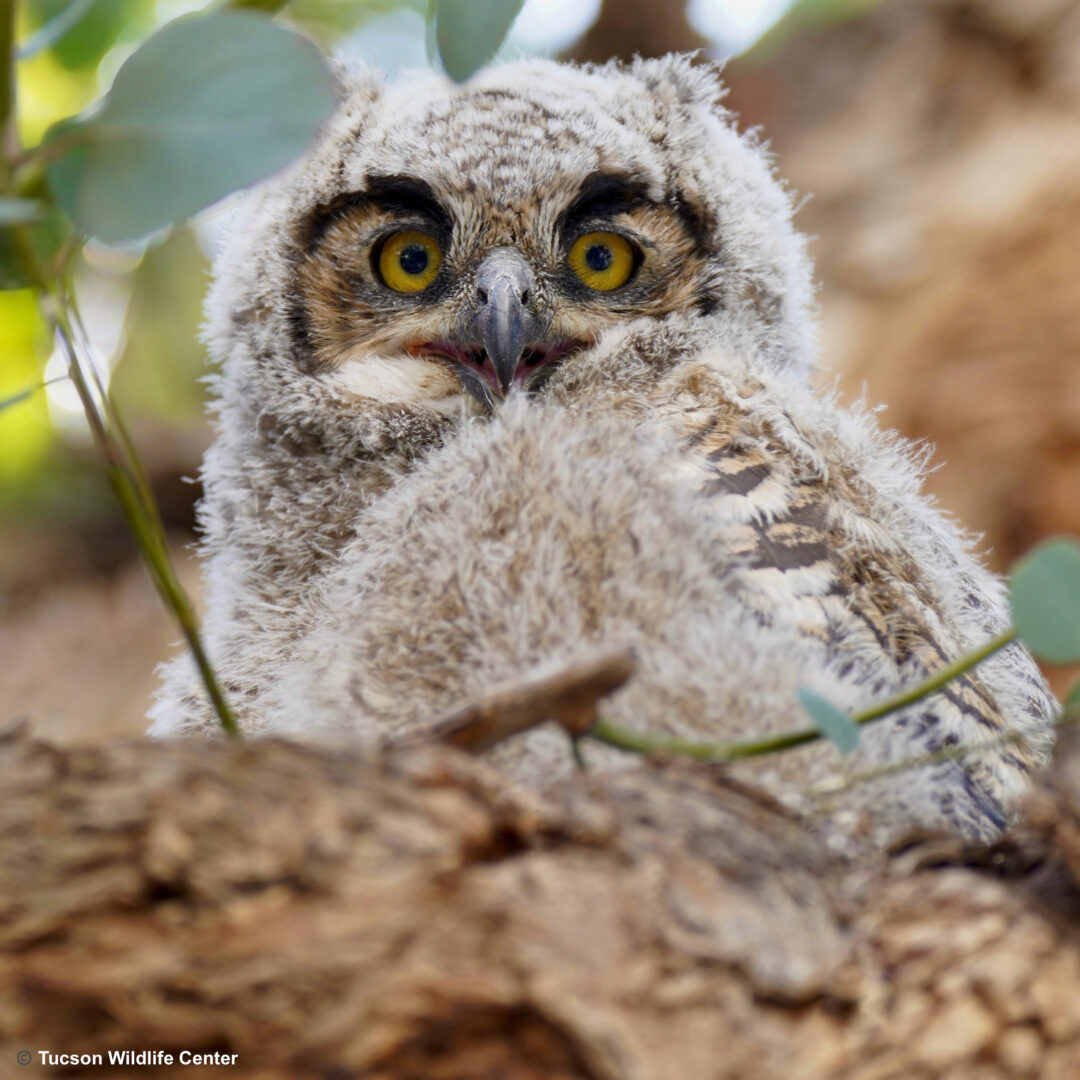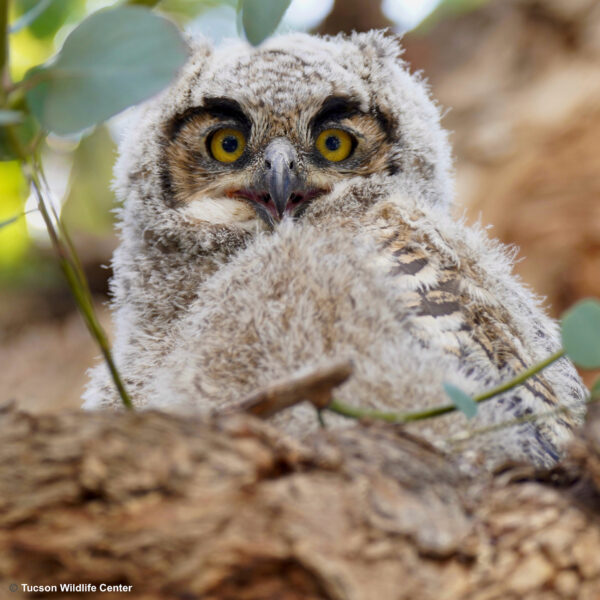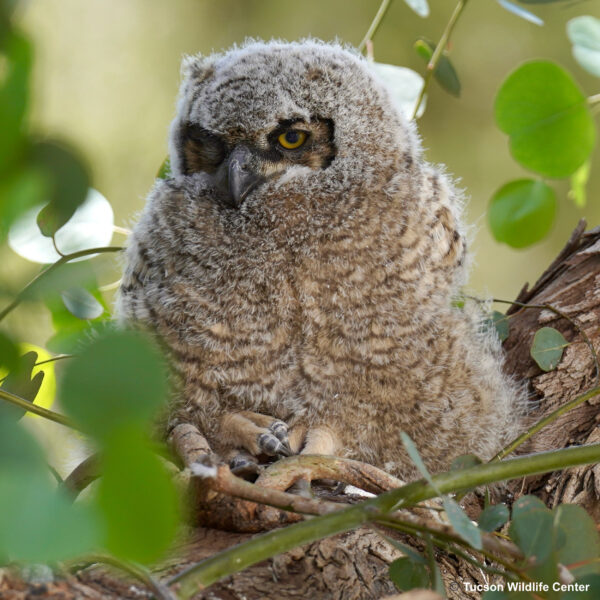
UPDATE: Renesting of Great Horned Owlets
Last week a team of wildlife care specialists from Tucson Wildlife Center renested two healthy great horned owl babies (owlets). Along with updates from their finders, we also have been stopping by to check up on their health and progress. We are excited to report that both owlets are thriving. At least one of them seems to have started taking some short flights away from the nest, as very often only one can be spotted in their nesting tree.
Great horned owlets typically go through five developmental stages: “hatchling” when they first emerge from their eggs; “nestling” in the first few weeks after hatching when they are mostly helpless and relying on their parents for food and warmth; “branchling” around 6-7 weeks old, when the owlets begin exploring the area around the nest by climbing on nearby branches and exercising their wings; “fledgling” around 9-10 weeks old, when they begin spending their time on low branches or on the ground and taking their first short flights; and “independence” when they begin honing their hunting abilities and learning to fend for themselves.
Throughout these stages, the parents play a crucial role in providing food, protection, and guidance to their offspring, gradually preparing them for life on their own. And just like human siblings, individual owlets can vary in their growth and development due to factors such as genetics, health, and even differences in how much food each one receives.
If you would like to help patients like these owlets, please click the donate button below.
Another way you can contribute is to visit our “wish list” on Amazon by clicking on the Amazon Wish List button below. We appreciate it, as will all the wild animals in our care!



